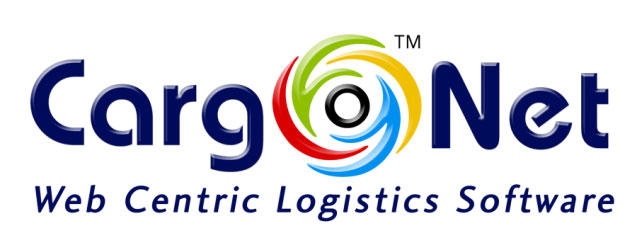In the fast-paced world of global logistics, air freight forwarders are under constant pressure to deliver faster, reduce errors, and stay compliant with international regulations. Manual documentation, scattered communications, and ever-changing freight rates make it difficult to stay competitive. The right air freight software doesn’t just solve these problems — it becomes the backbone of your operations.
In this blog, we uncover the Top 10 Best Air Freight Software tools trusted by freight forwarders in 2025 — and how they solve real industry pain points.
Real-World Challenges Freight Forwarders Face :
Here’s a look at what most air freight forwarders are up against:
- No real-time visibility: Customers demand live tracking. Manual updates via calls and emails lead to frustration and inefficiency.
- Tedious paperwork: Air Waybills, HAWBs, and customs forms slow you down when handled manually.
- Complex rate management: Quoting freight accurately is tough with fluctuating airline rates and surcharges.
- Global compliance pressure: Staying updated with IATA, ACI, AMS, ISF, and country-specific customs rules is overwhelming.
- Disconnected communication: Branch offices, airline partners, and ground handlers are rarely in sync.
- Scaling limitations: As volume grows, outdated processes can’t keep up.
Understanding the Air Freight Operational Workflow
Before diving into the tools, here’s a quick overview of how air freight operations typically flow:
1. Quote & Booking
- No real-time visibility: Customers demand live tracking. Manual updates via calls and emails lead to frustration and inefficiency.
- Tedious paperwork: Air Waybills, HAWBs, and customs forms slow you down when handled manually.
- Complex rate management: Quoting freight accurately is tough with fluctuating airline rates and surcharges.
2. Documentation & Compliance
- Fetch air freight rates from multiple airlines
- Quote to shippers instantly with all surcharges included
- Book space directly with carriers
3. Cargo Handling & Coordination
- Create MAWB (Master Air Waybill) & HAWB (House Air Waybill)
- Attach invoices, packing lists, and shipper letters of instruction (SLI)
- Submit e-AWB and comply with ACI, AMS, ISF, and other international filing systems
4. Tracking & Visibility
- Issue cargo receipt and arrange pick-up
- Generate barcodes, labels, and cargo manifest
- Coordinate with warehouse, ground handling agents (GHA), and customs
5. Invoicing & Settlement
- Track cargo movement from warehouse to airline to destination
- Alert customers on delays, ETAs, and milestone completions
- Integrate with carrier APIs for real-time updates
Powerful air freight software automates this entire cycle.
Top 10 Best Air Freight Software in 2025
1. CargoNet
Best for: Integrated logistics businesses (Air + Ocean + Land) and forwarders seeking full control
CargoNet offers a robust, all-in-one freight forwarding software tailored for freight forwarders. Whether you handle only air cargo or offer multimodal logistics, CargoNet centralizes everything — from bookings to billing.
Key Highlights:
- MAWB/HAWB auto-generation with airline-specific templates
- IATA e-AWB workflows with digital airway bill integration
- eManifest Filing (AMS, ISF, ACI, JP24, SCMTR, etc.)
- Rate management for air carriers with live surcharges
- Cargo Manifest, barcode-based cargo tracking & warehouse sync
- CRM module for lead capture, auto-quotation, and customer feedback
- Multimodal TMS for coordinating air, sea, and road shipments
- Finance Suite: CASS-ready billing, P&L, tax handling, and cheque printing
- Document compliance with country-specific customs
- Customer Portal for real-time shipment visibility, alerts & updates
- BI Dashboards: Profitability analytics, shipment KPIs, and operational insights
- Mobile-friendly interface for on-the-go tracking
Why CargoNet Stands Out:
Unlike most software that focuses only on one mode, CargoNet is a unified platform for air, ocean, and land freight, fully integrated with TMS + CRM + Finance + Customs Filing. It eliminates fragmentation and gives you full operational control.
2. CargoWise by WiseTech Global
Best for: Global freight networks and enterprise freight forwarders
CargoWise provides an extensive suite for freight, customs, warehousing, and compliance. It’s scalable for large 3PLs operating across multiple continents.
Pros: Global compliance, inter-branch visibility
Cons: Expensive, steep learning curve
3. Magaya Air Cargo Software
Best for: Mid-sized freight forwarders with warehouse operations
Magaya offers a solid platform for air cargo, logistics, and WMS. It handles bookings, warehouse integration, and compliance.
Pros: Good WMS + shipment visibility
Cons: Requires plugins for customs
4. Logitude World
Best for: SMEs looking for cloud-based air freight software
Logitude is user-friendly and offers features like e-AWB, tracking, CRM, and basic finance modules.
Pros: Simple UI, cloud-first
Cons: Limited advanced features
5. Freightos WebCargo
Best for: Rate management and digital bookings with carriers
WebCargo by Freightos connects directly with airline APIs for instant rate comparison and eBookings.
Pros: Instant pricing + digital bookings
Cons: Focused only on the initial booking stage
6. Transcount
Best for: Startups and small freight companies
Transcount offers a lean SaaS platform for air freight documentation, invoicing, and shipment tracking.
Pros: Affordable, fast setup
Cons: Focused only on the initial booking stage
7. BoxTop Technologies
Best for: UK-based logistics providers
BoxTop is a UK-centric freight forwarding software offering multi-modal features and document automation.
Pros: Strong UK compliance tools
Cons: Less support for North America/Asia
8. Softlink Logi-Sys
Best for: Indian freight forwarders and customs brokers
Logi-Sys is popular in India for its integration with ICEGATE, DGFT, and air customs processes.
Pros: Indian compliance strength
Cons: UI is less intuitive than competitors
9. Scope by Riege Software
Best for: High-volume forwarders in EU
Scope supports air freight, customs, and finance — ideal for businesses needing EU compliance and EDI.
Pros: Indian compliance strength
Cons: Complex implementation
10. BluJay (now e2open)
Best for: 3PLs and shippers with global SCM focus
e2open (formerly BluJay) integrates logistics, supply chain, and visibility into one advanced platform.
Pros: Enterprise-grade visibility
Cons: Enterprise pricing and training needs
Choosing the Right Air Freight Software for Your Business
When selecting your platform, consider:
Factor
Ask Yourself…
Freight Modes
Do I handle air only or multimodal (sea/land)?
Volume & Scale
Am I a startup or an enterprise forwarder?
Customs Compliance
Do I need ACI, ISF, AMS, IATA, SCMTR, etc.?
Financial Management
Do I want integrated billing & P&L?
Customer Experience
Can clients track shipments easily?
Flexibility
Does the software grow with my business?
CargoNet stands out with its full-stack logistics ERP tailored for modern freight businesses if you’re looking for an all-in-one solution that grows with you.
Final Thoughts
The future of air freight forwarding lies in automation, compliance, and visibility. Freight forwarders who digitize early gain the edge — faster quotes, fewer errors, better margins, and happier clients.
Whether you’re a growing freight agent or an integrated logistics provider, choosing the right software will determine your speed, scalability, and profitability.
Ready to Take Control of Your Air Freight Operations?
CargoNet brings you a unified platform to handle everything — from MAWB to Manifest, from CRM to CASS.
👉 Schedule a Free Demo today and experience the all-in-one power of CargoNet!










